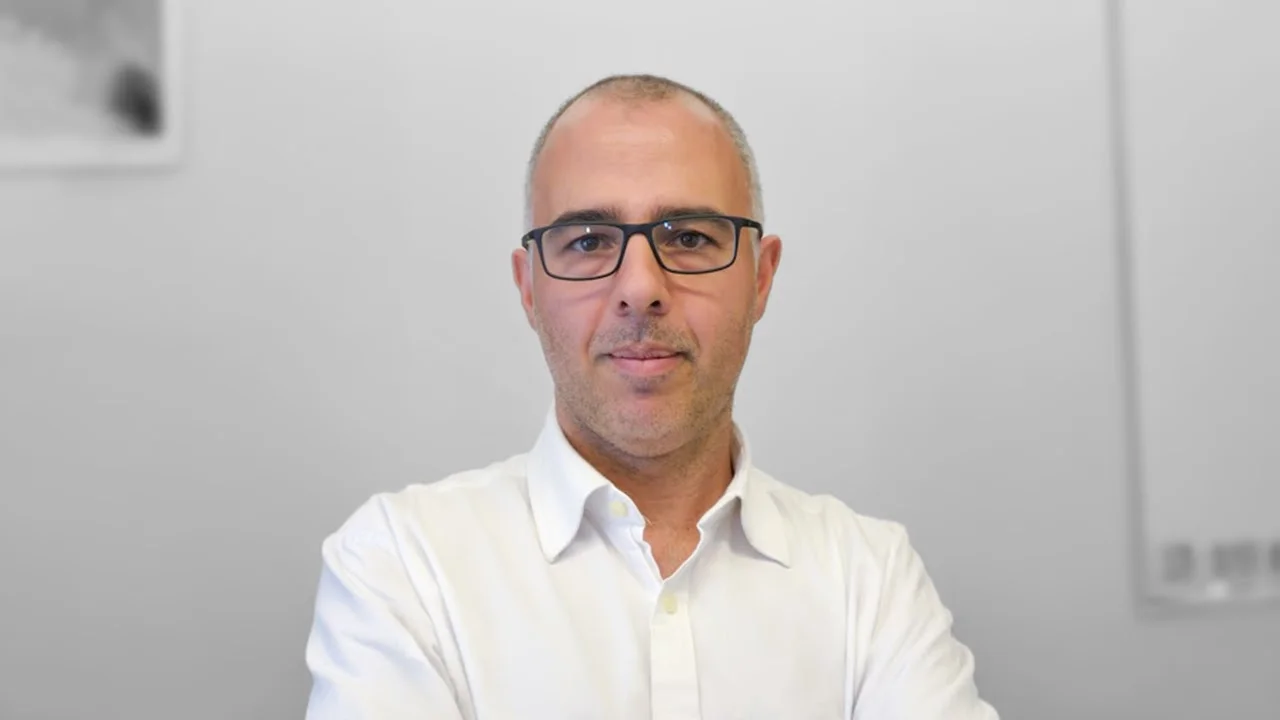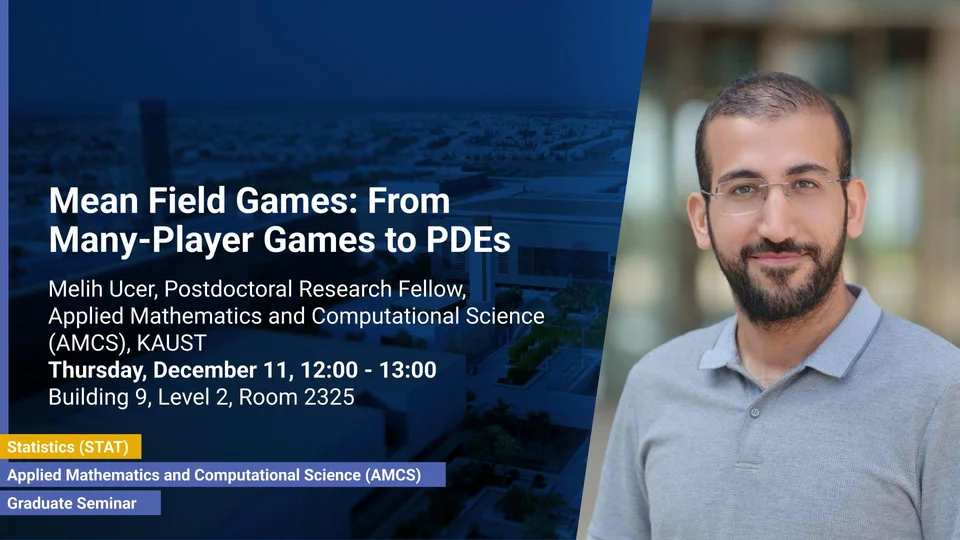
Diogo Gomes
- Professor, Applied Mathematics and Computational Science
- Principal Investigator, Mean-field Games and Nonlinear PDE
Professor Diogo Gomes, a distinguished expert in Applied Mathematics and Computational Science at KAUST, leverages advanced mathematics – including partial differential equations, numerical methods and mean-field game models – to solve complex problems in social sciences, economics and finance
Biography
Diogo Gomes is a professor of Applied Mathematics and Computational Science (AMCS) at KAUST.
He received his Ph.D. in Mathematics in 2000 from the University of California at Berkeley, U.S. Gomes completed his postdoctoral studies at the Institute for Advanced Study, Princeton University, U.S., in 2000, and at the University of Texas at Austin, U.S., in 2001. In 2006, he earned a Habilitation in Mathematics from the Technical University of Lisbon, Portugal.
In recognition of his academic excellence, Gomes was awarded UC Berkeley’s Morrey Prize in 1997. He has served as Editor of Minimax Theory and its Applications and the Journal of Dynamics and Games and Dynamic Games and Applications.
Research Interests
Professor Gomes' work focuses on partial differential equations (PDEs), namely viscosity solutions to elliptic, parabolic and Hamilton-Jacobi equations.
His research encompasses classical PDE questions—such as well-posedness, existence and uniqueness and regularity theory—and numerical methods and their applications. Gomes is particularly interested in applying mean-field game models to social sciences, economics and finance.
Professional Profile
Awards and Distinctions
- Morrey Prize, UC Berkeley, 1997
Professional Memberships
- Member, Minimax Theory and Its Applications, 2024
- Member, Journal of Dynamics and Games, 2024
- Member, Dynamic Games and Applications, 2024
Education
- Habilitation
- Mathematics, Instituto Superior Técnico, Portugal, 2006
- Doctor of Philosophy (Ph.D.)
- Mathematics, The University of California, Berkeley, United States, 2000
- Master of Science (M.S.)
- Mathematics, Instituto Superior Técnico, Portugal, 1996
- Bachelor of Science (B.S.)
- Physics Engineering, Instituto Superior Técnico, Portugal, 1995
Quote
My passion in PDEs urges for direct applications to enable scientific and social advancement.
Questions and Answers
Why KAUST?
KAUST was the natural choice for my career because of its potential to make a tremendous global impact on science and society. I am proud to be part of an international community that drives educational, economic and social change in the region while addressing global challenges. The solid support for research and the impressive facilities at KAUST are truly inspiring, allowing me to continually push the boundaries of my research always a step further with no restraint. KAUST is the ideal environment to pursue and nurture the highest scientific goals.
Why Partial Differential Equation?
Mean-field games (MFGs) are models for systems with a large number of rational agents who seek to minimize their costs using statistical information on the distribution of the population. These models were introduced in the engineering community by Huang et al. and in the mathematical community by Lasry and Lions. Many systems involving numerous particles, agents, or individuals—including those in statistical physics, biological models, crowds, and socio-economic models—can be represented as MFGs or as closely related systems of partial differential equations (PDEs).
Due to their generality and flexibility, MFGs have been applied in diverse research areas, including studies on non-renewable resources and mining models, opinion dynamics, price impact and order-book modeling, networks and energy management. The PDE models for MFGs are amenable to mathematical techniques, provide tractable problems for simulation, and are adaptable to address a wide range of applications. Moreover, the equations that arise in MFGs have significant independent mathematical interest.
